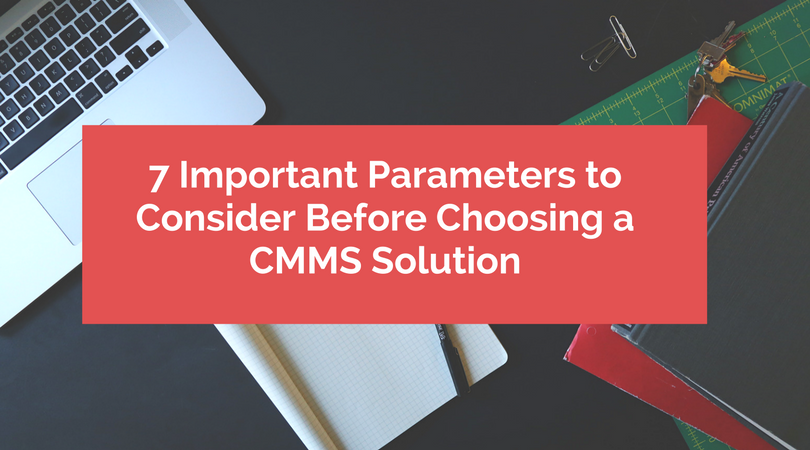7 Important Parameters to Consider Before Choosing a CMMS Solution
The CMMS market is crowded with so many different providers today. We know that not all solutions are equally good. Some are better than the others. It can be challenging to choose the one solution that best fits your organizational requirements. To help you in your process to search and find the best CMMS option out there, we have listed a set of seven most important parameters that you should look out for in a CMMS software.
#1 Flexibility
Streamlining maintenance management doesn’t mean everything has to be done in a single way. There are specific idiosyncrasies for various industries, companies, and departments and they have very specific requirements. Say, for example, the terms used, compliance requirements, preventive maintenance plan and daily workflow of a manufacturer will vary from a healthcare facility to an automobile spare manufacturing facility. You should look out for a solution that is flexible enough to be adapted to suit your specific needs.
#2 Transparency
Buying a CMMS solution and implementing it is an important investment. That’s exactly why you should be careful about the costs involved. Cost transparency is an important parameter that will reflect the reputation of the firm. An ethical provider will give you an upfront description of their pricing, so you can proceed with it, without worrying about hidden fees for every single thing in the future.
#3 Training and Implementation
CMMS implementation is not a plug and plays kind of situation. Research shows that over 80% of CMMS implementations fail due to a lack of training and implementation support, post-sale. In order to avoid this, make sure that you select a provider who has the proper post-sale support infrastructure in places, such as varied training options, implementation support, consulting services, and account management that fits your requirements.
#4 Locally Hosted vs. Cloud Hosted
CMMS solutions come in two different models, like every other software in this sector. One is Software-as-a-Service (SaaS) and another is a locally hosted version. Locally hosted versions are how CMMS started out in the market. The web-based, Software-as-a-Service (SaaS) model is relatively new and the main advantage is that it provides a lower Total Cost of Ownership (TCO). The implementation processes are a lot more simple with SaaS solutions as it requires less IT infrastructure and maintenance.
#5 Customer Success
Choose CMMS providers who have a strong commitment to customer success, build into their ethics. The successful implementation of a CMMS solution depends largely on the rapport between an organization and its CMMS provider. So make sure your vendor is keen on your success as much as he is keen on his.
#6 Accessibility
Any software solution should remove accessibility barriers, and it is highly critical when it comes to CMMS solutions. The ultimate aim of the system is to make your job easier to do, so the navigation should be as simple and intuitive as possible. You should be able to get the most meaningful insights from the information you provided in a matter of few clicks.
#7 Mobility
Mobile applications help you remove the restrictions of location and help you operate from anywhere, anytime. With the tremendous growth in the smartphone market, more clients are looking to access their CMMS modules remotely, on the move through their mobile device.
I hope this article was useful for you to learn about CMMS technology. If you have any doubts with regards to this, let us know through the comments and we will be glad to help you out. If you have any suggestions regarding how we can improve the article, let us know them through the comments as well for us to improve.



